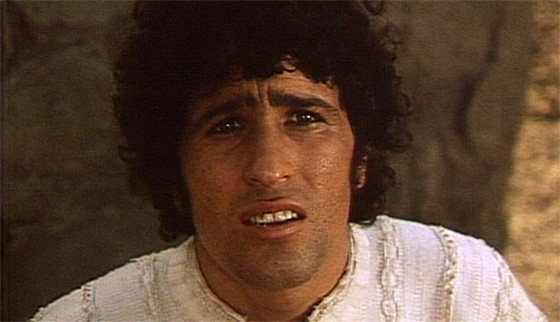

The first stories are read from a book by Zumurrud while the two are still in the idyllic stage of their relationship and rather serve to set up Pasolini’s view of this world: in the first, a noted sage and his wife make a deal about who will fall in love first between a boy and a girl they’ve arranged to have drugged so each will awaken in the same tent, but at different times but they discover they’ve both forgotten about hormones and declare it a draw when both immediately hump the other. She comes to a rich kingdom, where, luck would have it, the king has just died and it is the city’s custom to proclaim the next man to come in from the desert as the new king.

Zumurrud escapes her second captor (one of the forty thieves, no less), and crosses the desert dressed as a man. Alas, Nur is a bit of an idiot, and proceeds to allow Zumurrud to be kidnapped – twice – and will spend the rest of the movie looking for her. This is, as one might imagine, a pretty sweet deal, especially since Zumurrud takes special pains to make sure Nur is no longer a virgin, and then starts using her talents at embroidery to keep the money coming in. She chooses a young man, Nur Ed-din (Franco Merli) as her new master, and hands him a bag of a thousand dinars to purchase her, and procure a home. True to the other movies in the Trilogy, Pasolini also jettisons the formal framing device of the traditional Arabian Nights, so say farewell to Scheherazade and familiarize yourself with our first tale, which will take its place: the arrival of a slave girl Zumurrud (Ines Pellegrini) at the market – unusually, she is allowed to choose her new master, and isn’t shy about insulting prospective buyers. (I was more than a little surprised that two of the most famous of the tales – Aladdin and the Forty Thieves – didn’t enter the collection until the first French translation in 1704!) First instances of the collection date back to the 8th century, with more stories from various cultures being added over the years.
For this outing, Pasolini has gone farther afield in medieval literature, if Arabian Nights can even truly be considered medieval. So we come at last to the third and final movie in Pier Paolo Pasolini’s Trilogy of Life: Arabian Nights.


 0 kommentar(er)
0 kommentar(er)
